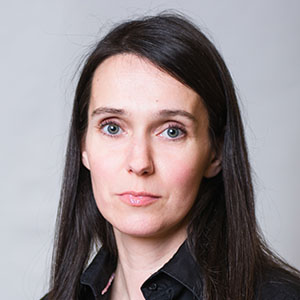
Olívia Fekete
Country: Hungary
Organization: Clinical psychologist private practice practitioner, Semmelweis University of Medicine and Healthcare
Short CV
Dr Fekete Olívia, PhD in Psychology Sciences, clinical psychologist specialist with over 20 years of experience in clinical field, both public and private healthcare systems, inpatient and outpatient settings.
Person-centered therapist, trained in and works with cognitive-behavior method, in EMDR and in hypnosis (Hypnotherapist candidate, EMDR therapist candidate).
In applied field she works in private practice in ambulatory health care, activity focus is on psychodiagnostics and psychotherapy for patients with clinical and non-clinical issues.
In education she works as lecturer at Semmelweis University of Medicine and Health Sciences (Budapest, Hungary), in the postgraduate Clinical psychologist specialization, teaching general psychodiagnostics and cognitive-behavioral diagnostics and therapy, and lecturer at ELTE (Budapest, Hungary) clinical psychologist MA specialisation, teaching person-centered method and skills in seminars.
In regards of scientific activity, she is currently engaged in clinical, method specific diagnostical and evaluative interview techniques development, and resource-based approaches.
Workshop
Title: The polyphony in psychotherapeutical methods: on the way of finding consonancy
Empathy, unconditional positive regard and congruence, the person-centered method’s specific therapeutical variables, are considered in other psychotherapeutical approaches as non-specific characteristics of the therapist that have essential functions: to build rapport, to found and maintain therapeutical allience as well as to catalyse method specific intervention or to enhance their efficiency.
In the clinical setting, when conceptualizing a psychotherapeutical diagnosis, making decision on method indications, finally concretizing method choice and therapy planning, the therapist faces method combination dilemmas. Even after starting off a plan, the necessity of method change, or change of the combination can raise, due to the patients’ state or patients’ unfavorable reaction to applied therapeutical intervention.
The workshop is adressing the fundamental questions of humanistic psychotherapy’s combination with other methods. Different pathways of methodological polyphony are dressed and the polyphonies’ advantages and the difficulties are discussed, pointing on challenging clinical situations such as crisis states, auto- and heteroagression, frame violations and the general difficulties of directivity and structure in integrated method settings.
4 polyphony pathway categories will be adressed, two in settings where person-centered therapeutic variables are specific, and two in settings where person-centered therapeutic variable are non-specific.
By reflecting on dilemmas from their own practice, the workshop participants can make conscious the features of their current method combination practice, pinpoint on their development potential in method integration, increase their knowledge and flexibility in terms of applying person-centered values in specific and non-specific conditions.
The workshop takeaway is a personal growth in mastering a sound polyphony of methods where the person-centered voice is providing the base.The workshop is preferably recommended for participants who are working with clinical patient population.

